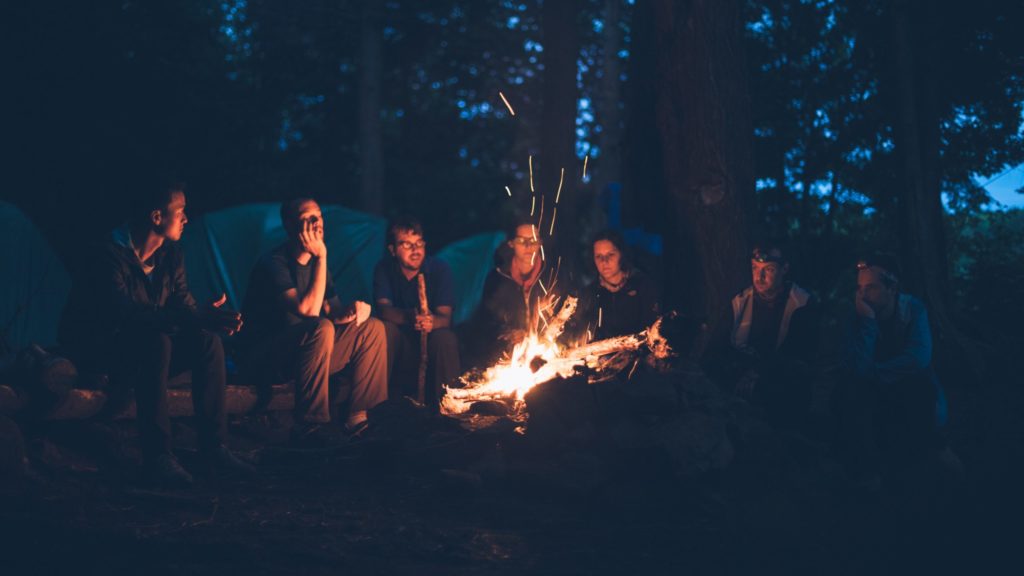If you feel like making friends is getting harder as you get older, it’s not all in your head. In a recent NPR interview, psychologist and University of Maryland professor Marisa G. Franco said making friends becomes more difficult as you get older because it no longer happens organically.
“Sociologists have kind of identified the ingredients that need to be in place for us to make friends organically, and they are continuous unplanned interaction and shared vulnerability,” says Franco, who is writing a book on making friends as an adult. “But as we become adults, we have less and less environments where those ingredients are at play.
If we continue to expect friendships to happen naturally like they did when we were kids, we run the risk of waiting for something that might never come. Being intentional is essential.”
I’ve seen this phenomenon play out in my own life. As a college student and young professional, I was surrounded by people in a similar stage of life. Making friends and gathering connections seemed effortless. By the time I was in my late 20s, though, many of those “organic” groups had dissolved as people moved, got married and started families. If I wasn’t intentional about making space in my life for potential friends, it didn’t happen.
Here at Boundless, we talk a lot about intentionality in dating, but being intentional is also necessary for friendship. And friendship is vital to a fulfilling life. It’s no wonder our world is drawn to sitcoms and dramas where the characters seem to have a built-in support system. Had a bad day at work? Joey can make you laugh. Feeling down on your luck? Leslie will pull you out of your funk with her eternal optimism and endearing antics. Going through the worst day of your life? Ted is there with a pep talk and homemade biscuits.
I’ve often wished these types of friend groups existed in real life. Sometimes they do — or at least a version of them for a season — but they require a lot of work to cultivate and maintain. While the friendships portrayed on TV may not be realistic, they reveal the longing in our human hearts for closeness, belonging and connection.
Being intentional about cultivating friendships in our lives can yield sweet fruit. But making friends in adulthood requires effort and getting out of our comfort zones. In fact, Franco says, one key to making friends is simply asking for contact information. Something I’ve focused on this year is “closing the deal.” When I have a good conversation with someone, I put her number in my phone and don’t wait long before texting about getting together. I also try to be open to new friends even if I feel my friendship tank is full. I’ve found that sometimes God brings an important relationship into my life at an unexpected time.
The power of groups
In many areas of life, we emphasize quality over quantity. And while the quality of our relationships is important, Franco’s research reveals that one friendship does not community make.
“Researchers also find that when we develop groups, our friendships are more sustainable than they are with individuals. Because there’s multiple touch points now, right? Someone else in the group could reach out to all of us, and then we all keep in touch,” she notes.
This is where I think Christian community and the church can shine. Each week I attend a small group and women’s Bible study. I also serve weekly in our church’s sixth grade ministry. These regular group events provide a sense of camaraderie and connection that staves off loneliness and allows me to feel like I’m part of something. I often experience uplifting conversations and interactions with people of all ages during both the group and the informal time afterward.
Inviting connection
A major barrier to adults forming friendships is past friendship flops, Franco says. One man quoted in the article said he once tried to reach out to a potential new friend and the person told him they already had enough friends. This unfortunate experience kept him from trying again for more than a decade.
I have also had some negative friend experiences during adulthood. I’ve felt passed over, unlikeable and left out. The thing I’ve had to remember is that though people made me feel that way, it wasn’t the truth about me. There were plenty of people out there who would enjoy being my friend.
If you’re living in a place of loneliness, Franco says, you are more likely to assume people don’t like you or will reject your friendship, which can become a self-fulfilling prophecy. The antidote is to live loved, not lonely. Focusing on God’s love for you and His purposes for community can give you the confidence and courage to make new friends. God created us with a need for connection and invented friendship for our benefit. Ultimately, He is the One who can provide the community we long for.
Copyright 2021 Suzanne Hadley Gosselin. All Rights Reserved.












